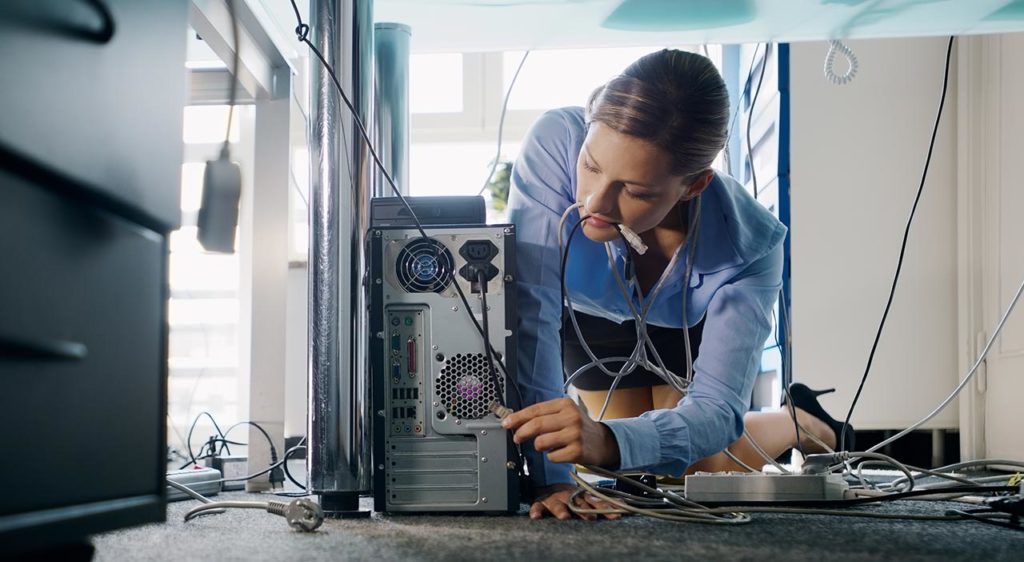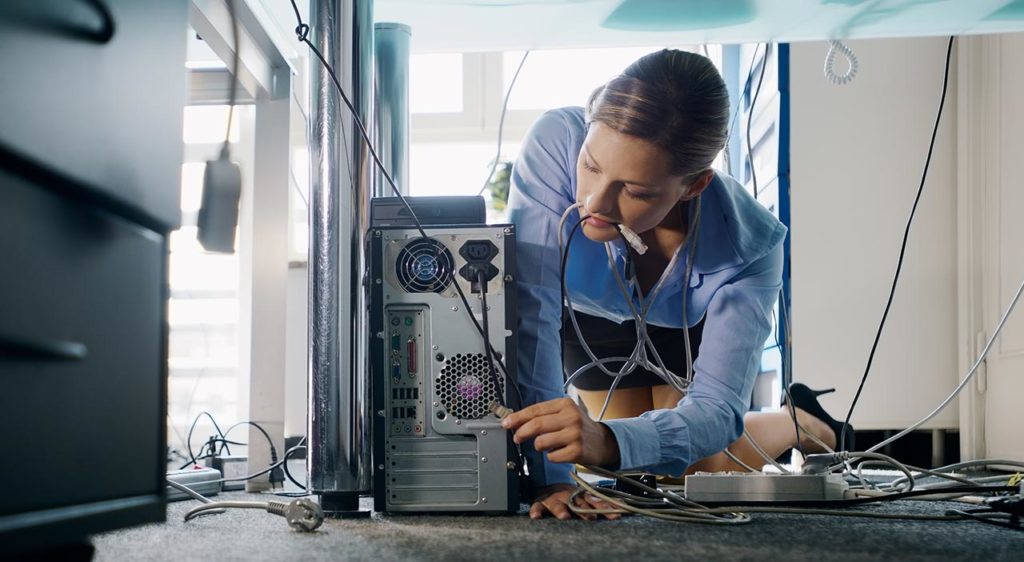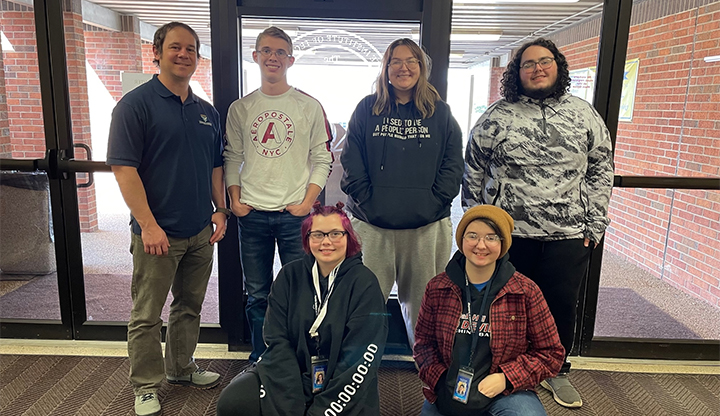Trial Technology Consultant: Guiding Legal Teams Through Digital Evidence
Trial technology consultants are the unsung heroes of the legal world, seamlessly weaving technology into the fabric of litigation. They navigate the complex landscape of digital evidence, transforming data into […]

Trial technology consultants are the unsung heroes of the legal world, seamlessly weaving technology into the fabric of litigation. They navigate the complex landscape of digital evidence, transforming data into compelling narratives that sway juries and judges.
These specialists possess a unique blend of technical expertise and legal acumen, ensuring that technology serves justice. They master the art of presenting evidence in a clear and impactful way, empowering legal teams to present their case effectively.
The Role of a Trial Technology Consultant
Trial technology consultants are essential players in the legal field, bridging the gap between legal strategy and technological advancements. Their expertise lies in harnessing technology to enhance the presentation of evidence, streamline trial processes, and ultimately, improve the outcome of legal cases.
Support for Legal Teams
Trial technology consultants act as strategic partners for legal teams, offering a wide range of services to support litigation efforts. Their primary responsibilities include:
- Case Preparation and Evidence Management: Consultants assist in organizing, analyzing, and presenting evidence in a clear and compelling manner. This includes utilizing software tools for data visualization, document management, and evidence tagging.
- Trial Presentation and Visualization: Consultants help create impactful trial presentations using multimedia tools such as interactive timelines, 3D models, and virtual reality simulations. These visual aids enhance audience engagement and understanding of complex legal concepts.
- Courtroom Technology Setup and Management: Consultants ensure seamless operation of courtroom technology, including video conferencing, document sharing systems, and presentation software. They also provide technical support during the trial, troubleshooting any issues that may arise.
- Deposition and Discovery Support: Consultants leverage technology to streamline the deposition and discovery process. This includes tools for remote depositions, secure document sharing, and data analysis.
- Trial Strategy and Tactics: Consultants advise legal teams on how to best leverage technology to support their trial strategy. This includes recommending appropriate technology tools, developing visual aids, and creating effective presentations.
Types of Trials
Trial technology consultants can be involved in a variety of trials, including:
- Civil Trials: These cases often involve complex financial transactions, medical records, and expert testimony. Consultants can help organize and present this information effectively.
- Criminal Trials: Consultants can use technology to visualize crime scenes, analyze forensic evidence, and present witness testimony in a compelling manner.
- Intellectual Property Trials: These cases often involve technical details and complex legal arguments. Consultants can help create visual aids and presentations that clearly explain these concepts.
- Arbitration and Mediation: Consultants can provide technical support for online arbitration and mediation proceedings, ensuring smooth communication and document sharing.
Trial Technology Tools and Techniques: Trial Technology Consultant

Trial technology tools and techniques are essential for lawyers and legal professionals to present compelling arguments, evidence, and narratives during legal proceedings. They help enhance communication, engagement, and understanding for the jury, judge, and other parties involved.
Trial Technology Tools
Trial technology tools play a crucial role in modern legal practice, aiding lawyers in presenting evidence, arguments, and timelines effectively. Here is a list of commonly used tools:
| Tool | Description | Application in Trial | Example |
|---|---|---|---|
| Presentation Software (e.g., PowerPoint, Keynote) | Allows creation of visually engaging presentations with text, images, videos, and animations. | Organizing and presenting opening statements, closing arguments, witness testimonies, and evidence. | A lawyer uses PowerPoint to present a timeline of events leading up to a car accident, incorporating photographs, witness statements, and expert opinions. |
| Trial Presentation Software (e.g., TrialDirector, Sanction) | Specialized software designed for courtroom presentations, offering features like evidence management, witness examination, and real-time annotations. | Organizing and presenting evidence, managing witness examinations, and displaying exhibits. | A lawyer uses TrialDirector to display a video deposition of a key witness, allowing the jury to see and hear the witness’s testimony directly. |
| Interactive Whiteboard (e.g., SMART Board, Promethean ActivPanel) | Large touchscreens that allow for real-time collaboration, annotation, and content sharing. | Illustrating concepts, annotating documents, and facilitating interactive discussions. | A lawyer uses an interactive whiteboard to explain a complex medical diagram to the jury, highlighting specific areas and answering questions in real-time. |
| Video Conferencing (e.g., Zoom, Microsoft Teams) | Allows remote participation in legal proceedings, enabling witnesses, experts, and lawyers to connect from different locations. | Conducting depositions, remote hearings, and virtual trials. | A lawyer uses Zoom to conduct a remote deposition of a witness located in another state, ensuring the witness can participate without traveling. |
| Document Management Software (e.g., iManage, NetDocuments) | Centralized platforms for storing, organizing, and managing legal documents, facilitating secure access and collaboration. | Organizing and sharing legal documents, managing discovery, and presenting evidence. | A lawyer uses iManage to store and manage all documents related to a case, ensuring easy access for the legal team and seamless sharing with opposing counsel. |
| Legal Research Databases (e.g., Westlaw, LexisNexis) | Comprehensive online databases containing legal information, case law, statutes, and regulations. | Conducting legal research, finding case precedents, and supporting legal arguments. | A lawyer uses Westlaw to research relevant case law and statutes to support their argument in a contract dispute. |
| Courtroom Technology (e.g., Digital Evidence Display Systems, Audio-Visual Equipment) | Specialized equipment used in courtrooms for displaying evidence, presentations, and audio-visual recordings. | Presenting evidence, playing videos, and enhancing the visual experience for the jury. | A lawyer uses a digital evidence display system to present a high-resolution image of a key piece of evidence, allowing the jury to examine it in detail. |
Trial Technology Techniques
Trial technology consultants utilize various techniques to enhance the presentation of evidence and legal arguments. These techniques aim to engage the jury, simplify complex information, and improve the overall effectiveness of legal proceedings.
- Visual Storytelling: Using images, videos, and animations to create a compelling narrative that connects with the jury on an emotional level.
- Data Visualization: Presenting complex data and statistics in an easily understandable format, such as charts, graphs, and infographics.
- Interactive Demonstrations: Using technology to create interactive simulations, models, and presentations that allow the jury to engage with the evidence directly.
- Expert Witness Testimony: Utilizing video conferencing or virtual reality to present expert testimony from remote locations, enhancing the credibility and impact of expert opinions.
- Virtual Reality (VR) and Augmented Reality (AR): Using VR and AR technologies to create immersive experiences that allow the jury to visualize the scene of the crime, understand complex medical procedures, or interact with evidence in a three-dimensional space.
Trial Preparation and Presentation
Trial technology consultants play a crucial role in preparing for and presenting compelling cases at trial. They leverage technology to streamline the process, enhance visual impact, and ensure the evidence is presented in a clear and persuasive manner.
Creating Compelling Trial Presentations
Trial technology consultants help create engaging and persuasive trial presentations by utilizing various software and techniques.
- Interactive timelines: They can create interactive timelines that visually illustrate the sequence of events, making it easier for jurors to understand the chronology of the case. This can be especially helpful in complex cases with multiple parties and events.
- 3D models and animations: For cases involving physical objects or locations, 3D models and animations can provide a realistic and immersive experience for jurors. These visuals can help them visualize the scene and understand the evidence more effectively.
- Data visualization: Using charts, graphs, and other data visualization tools, trial technology consultants can present complex data in an easily digestible format. This helps jurors understand patterns, trends, and relationships within the data, making the evidence more impactful.
Developing and Delivering Effective Trial Exhibits, Trial technology consultant
Trial technology consultants work closely with attorneys to develop and deliver effective trial exhibits.
- Digital exhibits: Instead of relying solely on physical exhibits, trial technology consultants can help create digital exhibits that can be easily displayed and manipulated during trial. This can include interactive maps, photographs, videos, and even virtual reality experiences.
- Exhibit management systems: Trial technology consultants can implement exhibit management systems that streamline the process of organizing, tagging, and presenting exhibits. This ensures that the right exhibits are available at the right time, minimizing delays and distractions during trial.
- Remote access to exhibits: In cases where witnesses or jurors are located remotely, trial technology consultants can ensure that they have access to all necessary exhibits through secure online platforms. This allows for seamless collaboration and participation regardless of location.
Future Trends in Trial Technology
The legal landscape is constantly evolving, and trial technology is at the forefront of this change. New tools and techniques are emerging all the time, offering innovative ways to present evidence, engage juries, and improve the efficiency of legal proceedings. This section will explore some of the most significant future trends in trial technology, examining their potential impact on the legal profession.
The Role of Artificial Intelligence and Machine Learning
Artificial intelligence (AI) and machine learning (ML) are transforming various industries, and the legal sector is no exception. These technologies have the potential to revolutionize trial preparation, evidence analysis, and courtroom presentations.
AI and ML can be used to:
- Automate document review: AI-powered software can analyze vast amounts of data, such as emails, contracts, and medical records, to identify key information and potential evidence much faster than human reviewers. This can significantly reduce the time and cost associated with document review.
- Predict case outcomes: ML algorithms can analyze past case data to identify patterns and predict the likelihood of success in future cases. This can help lawyers make informed decisions about settlement negotiations and trial strategy.
- Personalize jury selection: AI can analyze demographic data and social media activity to create profiles of potential jurors, helping lawyers identify individuals who are more likely to be sympathetic to their case.
Virtual and Augmented Reality in Legal Proceedings
Virtual reality (VR) and augmented reality (AR) are emerging technologies that are already making inroads into the legal profession. These technologies can create immersive and engaging experiences that can enhance the presentation of evidence and improve jury comprehension.
VR and AR can be used to:
- Create virtual crime scenes: VR technology can recreate accident scenes, crime scenes, or other locations in a highly realistic way, allowing jurors to experience the events as if they were present. This can help jurors understand the physical context of the case and make more informed decisions.
- Present evidence in a more engaging way: AR can overlay digital information onto the real world, allowing lawyers to present evidence in a more interactive and engaging way. For example, a lawyer could use AR to show jurors a 3D model of a car accident, or to highlight key features of a medical device.
- Conduct virtual site visits: VR can allow lawyers to take jurors on virtual site visits to locations that are difficult or expensive to access in person. This can be particularly useful in cases involving remote locations or hazardous environments.
The Future of Legal Technology
The future of trial technology is bright, with many exciting developments on the horizon. As AI, ML, VR, and AR continue to evolve, we can expect to see even more innovative tools and techniques that will transform the way legal professionals prepare for and present cases. These advancements will lead to more efficient, effective, and engaging legal proceedings, ultimately benefiting both lawyers and clients.
Outcome Summary
In an increasingly digital world, trial technology consultants are indispensable. They bridge the gap between technology and law, ensuring that legal teams leverage the power of data to achieve successful outcomes. As the legal landscape continues to evolve, their role will only grow more crucial, shaping the future of litigation through innovative technology solutions.
Trial technology consultants play a crucial role in modern litigation, helping attorneys present complex information effectively. When considering the features of a new vehicle, such as the Acura MDX base vs. technology models, trial technology consultants can help you understand the technical differences and make informed decisions.
Ultimately, trial technology consultants aim to ensure that technology enhances the legal process and promotes justice.





